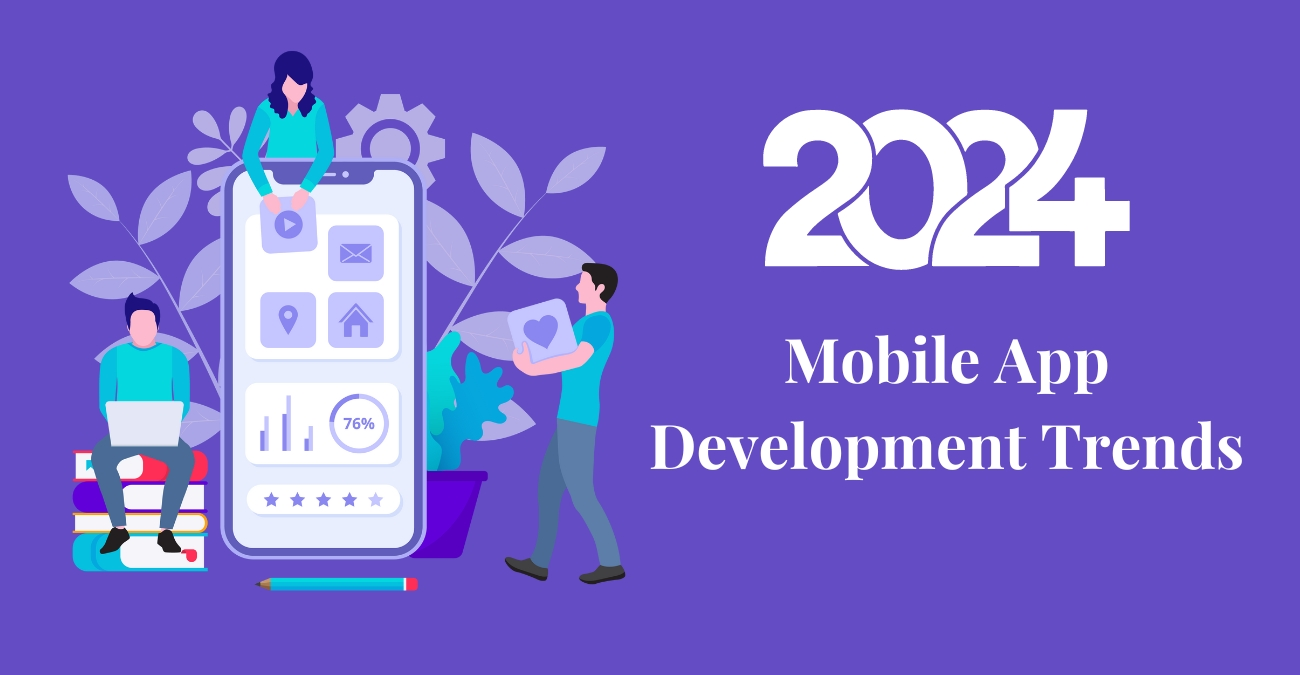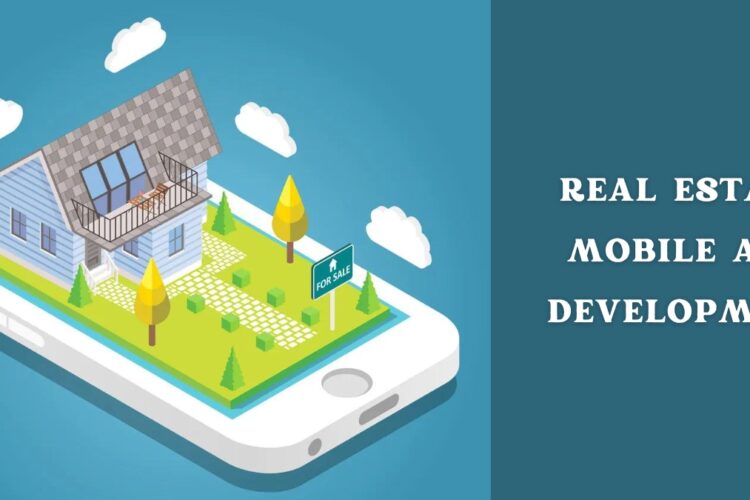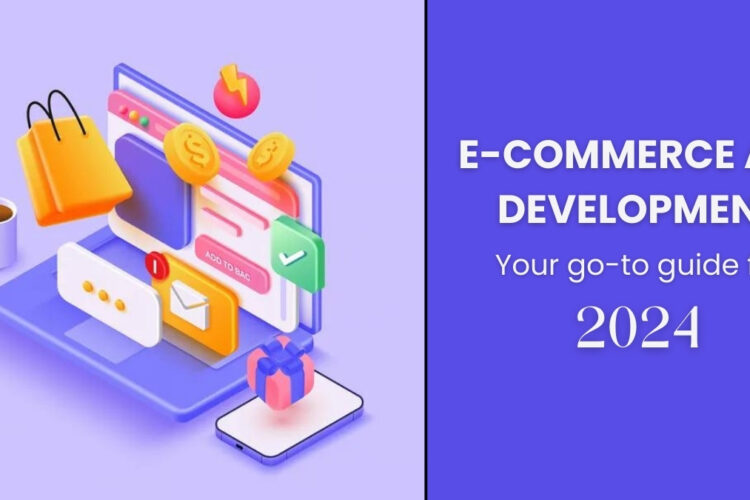
Knowing the most recent predictions and trends in the ever-changing field of mobile app development is not only a tactical advantage but also a competitive one. The massive mobile app market is a powerhouse that doesn’t seem to be leveling down. Developing software and mobile apps can be a useful digital strategy for your company to increase operational effectiveness and connect with new clients.
Around the world, there will reportedly be more than 18 billion mobile devices by 2025. The need for mobile app development services has risen along with the use of mobile devices, reaching record-breaking levels. It’s interesting to note that as new app trends have emerged, the market for mobile app development has also been changing.
Data-driven, tailored applications have been the focus of mobile application development trends over the past ten years. Mobile networks can now allow large data transfers at fast rates, thanks to the introduction of 5G networks. Consequently, the trend is shifting toward personalized and immersive apps that are data-intensive.
Whether you’re a tech enthusiast or simply curious about what the future holds, In this blog series, we’ll explore the most cutting-edge app development trends, from artificial intelligence to augmented reality and beyond. We’ll break down the complex stuff into easy-to-understand bites, showing you how these trends are poised to revolutionize the way we use apps and interact with the world around us
Mobile App Development – An Overview
The mobile app landscape continues to evolve rapidly, driven by technological advancements and changing user behaviors. In 2024 and beyond, several key trends are expected to shape the development and utilization of mobile applications. These trends encompass both technological innovations and strategic approaches, offering exciting possibilities for app developers and users alike.
Market Analysis
By 2026, the market for mobile apps is on the verge of reaching $614.40 billion, as per authentic online resources. There is a great deal of duty to adapt to shifting market norms along with the possible money.
Mobile app development growth cost was estimated to be worth an astounding USD 174.61 billion in 2021. The truly startling prediction, though, is what is coming up next: analysts project an astounding Compound Annual Growth Rate (CAGR) of 14.10% between 2024 and 2032. In context, that represents a growth rate that is quicker than the newest social media craze.
Even though end users have been able to use app solutions for more than ten years, corporate needs and technological advancements happen at a breakneck pace. Modern and more demanding trends in mobile app development follow as a result.
Thus, in order to provide your clients with the greatest experience possible, now is the ideal moment to familiarize yourself with the most recent trends in mobile app development if you’re hoping to increase your online presence through this medium.
Current Technologies of Mobile App Development
The current environment of mobile app development has evolved due to the increasing uptake of the newest frameworks and technologies. With the significance of native functionality and multi-platform capabilities, some of the well-known names in mobile app development are React Native, Swift, and Flutter, rule the field.
Advancing web apps have also grown in popularity at the same time because they offer smooth transitions between mobile and web app experiences.
Microservices architecture, which facilitates the construction of scalable and modular apps, is another well-liked trend in the current mobile app development business.
Also Read: How to Find an App Developer for Your Startup.
Top Best Mobile App Development Trends in 2024
1. Camera-Driven Mobile Apps
Video conferencing apps are being downloaded at an excelling speed these days. Revenue for companies that choose to develop video conference apps has increased dramatically, particularly since the advent of remote working. Apps that enable users to broadcast movies, communicate with friends, and create social networks are in high demand.
Trends in camera-based mobile development are also seen in the broadcasting, social media networks, and streaming entertainment niches. This is presumably the reason TikTok, which has a market revenue of billions, is among the most widely used streaming apps.
2. Untouchable User Interface
The touchless interface that applications provide to their consumers is one of the newest developments in mobile app development. By 2024, more than half of all popular business apps—according to Gartner—will have a touchless interface.
Even so, a lot of consumers have grown used to touchless user interface (UI), such as using biometrics to identify themselves or sign in. Apps for payments or finance require users to verify their identification with a biometric as a second authentication factor.
Gesture control, which allows you to operate apps by merely moving your head or screen, is another recent development in mobile app user interface design. Future mobile apps will have the capability to monitor eye movements in order to facilitate scrolling.
3. AI User Interface
The introduction of AI-powered user experiences in the field of mobile app development is a radical step forward. The creation of a digital environment that has a deep understanding of consumers is the fundamental impact that AI and machine learning have on mobile apps. It’s not just about convenience, though. We can expect this vision to come to pass in 2024.
Visualize programs that not only carry out your directions but also anticipate your requirements, detect your feelings, and adjust to you in real-time.
Not only will AI-powered apps be able to recognize faces for security purposes very quickly, but they will also make photographs more lively and more lifelike. They promise to provide the best online payment security available, protecting your online transactions.
4. Motion Design
Users of your app may become irritated with constant, intricate designs that encourage no interaction. Motion design is one way to solve this. To “grab down” your user’s attention is the aim. Icons with motion design contribute to engagement, interactivity, animation scrolling, and macro interaction.
For example, the Appinventiv UI/UX specialists enhanced Domino’s app with sophisticated motion design elements, resulting in a 23% higher conversion rate.
As motion layouts can produce dynamic and engaging app interfaces, they are becoming more and more popular. They will play a major role in app design by 2024 and in the coming years. Apps with motion design elements also help users save time and have an amazing experience.
5. Virtual reality (VR) and augmented reality (AR)
By 2024, augmented reality (AR) and virtual reality (VR) will have become mainstream trends that go well beyond the game industry. These technologies are developing into revolutionary forces that will alter both our digital and physical experiences.
In addition to contributing significantly to advancements in interior design, the technologies have had a notable effect on social networks. It’s interesting to note that AR and VR could open up new opportunities for game-changing advancements across a variety of sectors, including e-commerce, travel, entertainment, healthcare, retail, and education.
AR and VR will primarily affect mobile app development through the utilization of edge computing, which could result in faster data processing and lower latency. Even while the debut of Apple’s Vision Pro may still seem like a mind-blowing experience to us, it seems like it was only the beginning. Furthermore, the use of AR and VR in mobile app development may pave the way for the addition of Extended Reality, or XR, technologies in mobile apps.
6. Customized Apps
In the coming years, the on-demand mobile app business is expected to grow largely, with far-reaching consequences. In addition to being convenient, on-demand apps represent the future of adaptability and effective resource management. They have the power to completely change the way businesses operate, offer services, and make crucial decisions.
Think about the options. On-demand apps are your friend whether you’re a healthcare provider in desperate need of a specialized medical device for a crucial procedure, a logistics virtuoso aiming for real-time route optimization, or a fintech trailblazer needing quick, secure data analysis for financially transformative decisions.
These applications are more than a passing fad. Apps are the way of the future for resource management that is intelligent and agile in the fields of healthcare and logistics.
Also Read: How Long Does it Take to Build An App.
7. Audio Emphasized Social Media Apps
The next significant trend in social media apps has to be camera- and video-based, but classic audio-based formats are also receiving a lot of attention from users.
Clubhouse, an audio-based conversational social media app with over 10 million active members, is one well-known example of this. Users can jump into or flip between any chat room on Clubhouse to participate in impromptu conversations.
With a 100% growth rate over the last four years, this cutting-edge voice-based software has established audio as a “meta-trend” that extends well beyond social media apps.
8. Forecast Insights
This trend in mobile app development has been discussed several times. Using machine learning, artificial intelligence, data mining, modeling, and other technologies, predictive analytics can use data to foresee occurrences. A user’s past behavior may also be used to inform how you promote your services and product recommendations.
Netflix’s use of predictive analytics in mobile apps to recommend shows to users based on their viewing history is a frequent practice. Predictive analytics will, nevertheless, become widely used in 2024 to improve customer experience. The concept is that no two individuals should ever interact with the program in the same way.
9. 5G Technology
5G technology is now revolutionizing the creation of mobile apps by providing faster data rates, less latency, and more network capacity. This enables developers to create more intricate and captivating app experiences.
The quick speed and low latency of 5G present new possibilities for app developers to create imaginative, interactive, and data-intensive applications that can transform markets and enhance user experiences.
A characteristic is evident in this exciting and competitive era of mobile app development powered by 5G: it will completely transform the digital environment. Those that adopt it will surely raise the bar for developing mobile apps.
10. Messenger bots
Chatbots have emerged as a significant trend in mobile app development because of their capacity to offer consumers personalized and interesting dialogue experiences. Chatbots communicate with users in natural language, offering instant support and answering inquiries.
Thanks to advancements in machine learning and natural language processing (NLP), chatbots are getting more intelligent and efficient. This results in seamless interactions and increased user satisfaction with mobile app experiences.
11. Personalized Micro-Interactions
The use of micro-interactions for personalizing is expected to become a major trend in mobile app development by 2024. The small but powerful elements that give mobile apps life, such as personalized alerts, haptic feedback, and subtle animations, are known as micro-interactions.
These are the minute touches that make your users feel cherished, devoted, and enthralled with your app—not just the glitzy features. The future of mobile app development is micro-interactions for customization, and implementing them is essential to differentiating your company in the very competitive digital market.
12. Cloud-Based Software
Developers may now create mobile apps with greater flexibility and scalability thanks to cloud computing. Developers can lessen the load on device resources by storing and processing data remotely using cloud services. A consistent user experience is ensured by this seamless connection across various devices.
Furthermore, cloud computing makes it simple to maintain and upgrade systems and facilitates effective teamwork among developers. Mobile apps can provide creative, data-driven, and resource-efficient solutions by utilizing cloud computing.
13. User Interfaces for Voice
Another intriguing contender to transform mobile app development services and trends in 2024 is Voice User Interfaces or VUIs. VUIs have the potential to significantly alter the methods we use to interact with mobile apps.
Siri, Alexa, and Google Assistant have given us a taste of what voice-activated technologies can offer. In an era where voice-activated interactions are becoming more popular, voice-activated user interfaces may flourish as a significant participant. It’s interesting to note that VUI applications provide benefits beyond convenience.
14. Emphasis on Cybersecurity:
As digital risks continue to evolve, mobile app development must now prioritize cybersecurity. In app development, putting security first has become the norm. More than just trendy, integrating security from the get-go offers a tangible edge in several ways.
Firstly, it cultivates user trust, the most valuable currency in the app arena. Data breaches and privacy leaks shatter confidence, while robust security measures shout “responsible stewardship.” This translates to user loyalty, positive reviews, and higher engagement.
Secondly, it’s a strategic safeguard. Proactive security protects your app from malware, unauthorized access, and data theft, saving you from costly downtime, reputational damage, and potential legal repercussions. As regulations tighten and user expectations evolve, apps built with security in mind adapt seamlessly.
Conclusion
One thing becomes quite evident as we come to a conclusion of this tour through the developments that revolutionized mobile app development in 2024 and beyond: the digital landscape is always changing. These trends are the cornerstones of a future that every one of us is actively constructing; they are not just catchphrases. As an innovator, a company leader, or just a tech enthusiast, you are a part of this dynamic ecosystem where technology, human experience, and innovation come together.
The development of mobile apps may be redesigned by prominent concepts, including artificial intelligence (AI), machine learning, the Internet of Things (IoT), virtual user interfaces (VUIs), microinteractions, and cloud integration. The development of strong mobile apps with smooth value advantages would also be greatly aided by the introduction of 5G technology and the focus on app security.
As the mobile landscape continues to evolve, partnering with a forward-thinking development team becomes crucial. At Codesy Consulting, we don’t just build apps – we create immersive experiences designed for the future. Our expertise in incorporating the latest trends, prioritizing robust security, and crafting user-centric designs ensures your mobile app not only thrives today but remains competitive tomorrow. If you’re ready to transform your vision into a groundbreaking mobile reality, Codesy Consulting is your ideal partner..





